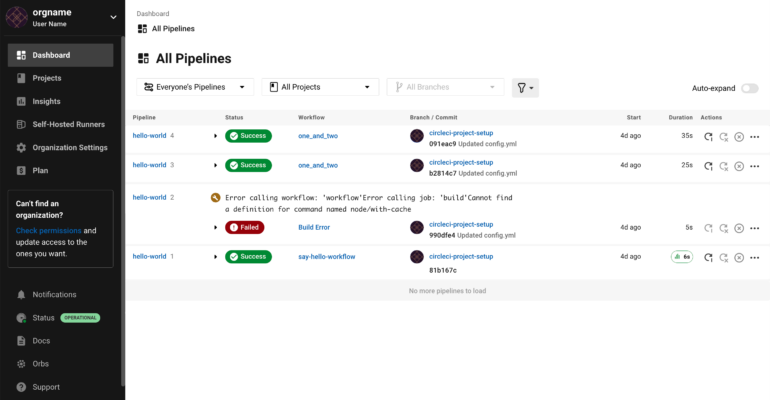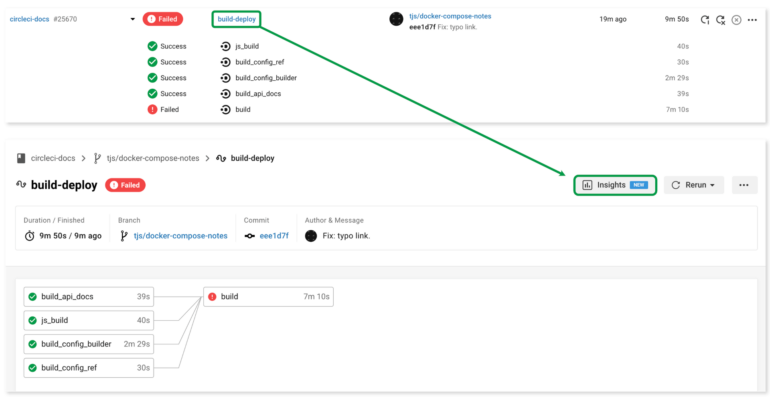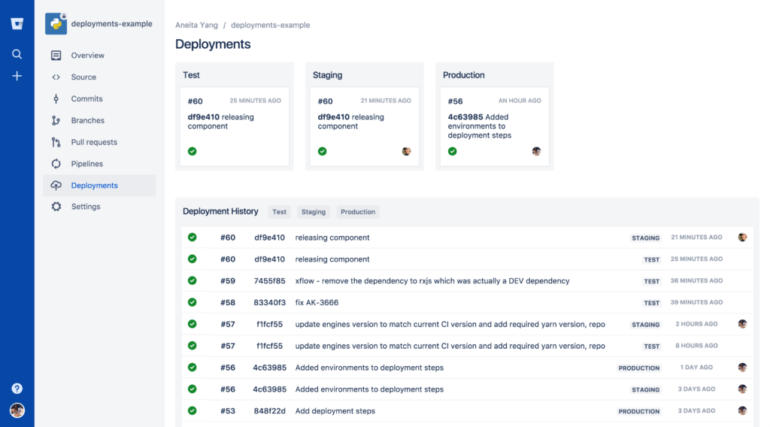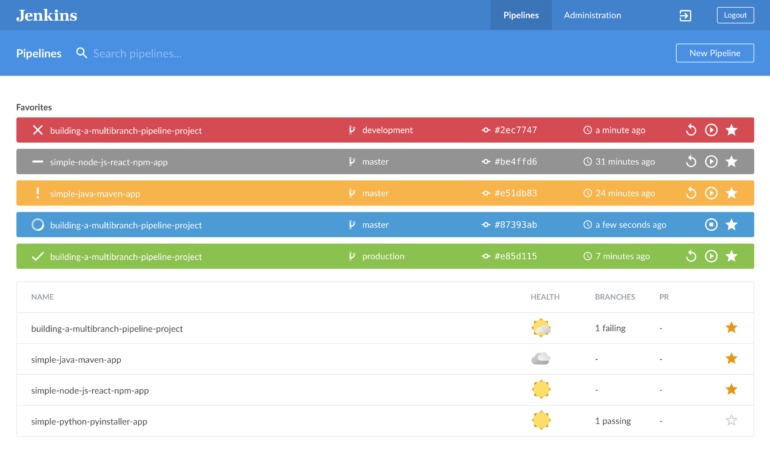CircleCI is a Continuous Integration and Continuous Delivery (CI/CD) platform that helps modern engineering teams automate builds, boost developer productivity, and release new, high-quality software quickly. Small startups to some of the most prominent G100 organizations around the globe have used CircleCI to build software quickly and confidently and gain an edge over their competitors via intelligent automations.
To help you decide if CircleCI is the right CI/CD tool for your software development team, we will discuss its features, pricing, advantages, and disadvantages. And, to give you some options when shopping around, we will also reveal some of the top CircleCI alternatives in the CI/CD market.
Jump to:
Overview of CircleCI

CircleCI got its start in 2011 by a remote team of developers working around the world. It is a solid choice for development teams seeking a CI/CD tool to help them build fully-automated pipelines, reduce human error, and free up time for focusing on innovation.
Features of CircleCI
Developers who make CircleCI their CI/CD tool of choice can enjoy the following features:
- Multiple execution environments
- Powerful resource classes
- Workflows
- Advanced caching
- Insights dashboard
- VS Code extension
- Debugging with SSH
- Integrations
- Security
- Various hosting options
CircleCI gives developers the power to automate builds across various execution environments. Programmers can build on any machine in any language, and the CI/CD tool offers support for Linux VM, Docker, macOS, GPU, Windows, and Arm. CircleCI’s powerful resource classes let developers optimize compute power and customize CPU, GPUs, and RAM to enjoy increased productivity and decreased build times.
Workflows in CircleCI let you run and troubleshoot jobs separately to receive real-time status feedback, allowing you to use resources more efficiently, experience shorter reruns, and, in the end, accelerate software development. The VS Code extension eliminates focus-killing context switching. SHS debugging, meanwhile, offers an optimal avenue for troubleshooting and fixing issues faster.
The ways in which CircleCI boosts productivity do not stop there, though, as it also has advanced caching to make jobs faster, plus an insights dashboard that displays the health and usage of your build processes so you can make proper decisions.
What about integrations? You can build with CircleCI using GitHub, Bitbucket, or GitLab, and the CI/CD tool has thousands of existing integrations, plus it gives developers the option to create their own. Use webhooks to create customizable integrations or use CircleCI’s RESTful API.

Wrapping up CircleCI’s list of features is security. The CI/CD tool has various measures in place to ensure your projects stay secure, including authentication via OpenID Connect, FedRAMP and SOC 2 Type II compliance, config policies, and more.
CircleCI Pricing
CircleCI has multiple pricing tiers to fit varying development team budgets. How much does CircleCI cost? Here are its different pricing options:
- Free: No cost for basic features.
- Performance: Starts at $15 per month for five users.
- Scale: Starts at $2,000 per month, billed annually.
- Server: Custom pricing. Contact CircleCI for more information.
The cloud-based Free plan requires no credit card to get started. It gives developers up to 6,000 build minutes per month, with options to build for Docker, Linux, Windows, macOS, and Arm or via your own computer with self-hosted runners. The Free plan allows you to pick between different resource class sizes (S-L). It also lets you run up to 30 jobs simultaneously, plus run parallel tests with test splitting.
CircleCI’s Performance plan is also cloud-based. It lets developers pay for what they use, which offers a nice bit of flexibility when building. The Performance plan offers 6,000 bonus build minutes per month; you can pay for additional minutes as you go. It includes five user seats; you can add more for $15 per user. Other perks include larger resource classes, the ability to run 80 jobs concurrently, and added support.
The cloud-based Scale plan supplies enterprise-level support and confidence for teams that deliver. You can customize your build minutes/seat to fit your development team’s unique needs, plus enjoy GPU resource classes and added control via audit logging, bulk data export, config policies, and more. CircleCI’s Scale plan comes with 24/7 support and a dedicated account team.
Last but not least is the Server plan. This self-hosted option from CircleCI allows developers to run the software on-premises or in a private cloud. The Server plan offers unlimited build minutes, 30 user seats that can be expanded later on, and the flexibility to build on Arm, Android, Windows, and Linux. Server customers also get migration assistance, 24/7 support, and a dedicated account team.
You can learn more details through CircleCI’s pricing page.
Advantages of CircleCI
CircleCI has several pros that make it an attractive CI/CD tool for software development teams:
- Easy to use.
- Robust free plan.
- Seamless migration.
- Fast response time.
CircleCI is user-friendly and intuitive, allowing development teams to get started with minimal onboarding. The Free plan, with its 6,000 monthly build minutes, lets developers on limited budgets get their feet wet with the software with no risk.
Beyond those benefits, CircleCI is easy to switch to. Should your team need to migrate from GitHub Actions, Jenkins, or some other CI/CD provider, a support team is there to make the transition seamless. And perhaps most important of all, CircleCI is fast (supposedly 70 percent faster on average than competitors) and offers enterprise-level speed to help teams deliver quickly.
Disadvantages of CircleCI
While CircleCI has plenty of advantages in its favor, it, like any other CI/CD tool, also has its disadvantages, which include:
- Pricing.
- Build limits.
- Reported downtime.
- Repository support is viewed as limited.
CircleCI’s cost can start to creep up as your development team needs more build minutes. Some have found the software’s pricing to be a bit complex, as it combines build minutes, user seats, etc., that can be tough to calculate or budget for.
However, build limits and pricing are not the only gripes about CircleCI, as some have cited stability issues resulting from downtime and extended outages. And, in terms of repositories, added support beyond GitHub, Bitbucket, and, as of late, GitLab would be welcome.
Alternatives to CircleCI
If some of CircleCI’s disadvantages have you worried, you will be glad to know that several other CI/CD tools are on the market. Here are some of the top CircleCI alternatives.
Bitbucket Pipelines

Does your development team use Jira to manage projects? Then Bitbucket Pipelines by Atlassian may be your best CircleCI alternative since it offers best-in-class Jira integration. Offering CI/CD built into Bitbucket, Pipelines also offers unlimited private repositories and a Free plan. Its Standard plan starts at $3 per user, per month.
Learn more about Bitbucket Pipelines.
GitLab CI/CD

GitLab CI/CD is ideal for individual developers or teams on limited budgets. The CI/CD tool has a solid free forever plan, superb security, and a ChatOps feature that triggers CI jobs from chat. GitLab Premium starts at $24 per user, per month.
Go here to learn more about GitLab CI/CD.
Jenkins

Are you looking for an open-source CircleCI alternative? Look no further than Jenkins, a CI/CD tool that is a well-known name in the industry. Its community offers support that is tough to beat, and its massive plugin library lets you integrate with nearly every tool in the CI/CD toolchain. Jenkins is free, although you will need to host it via your own server.
You can learn more about Jenkins here.
Final Thoughts on CircleCI
CircleCI is an excellent pick for development teams needing a fast and easy-to-use CI/CD tool. It is not the only CI/CD tool of its kind, however, so if you are seeking something that supports more repositories and offers more stability and less downtime, try one of the CircleCI alternatives listed above.







